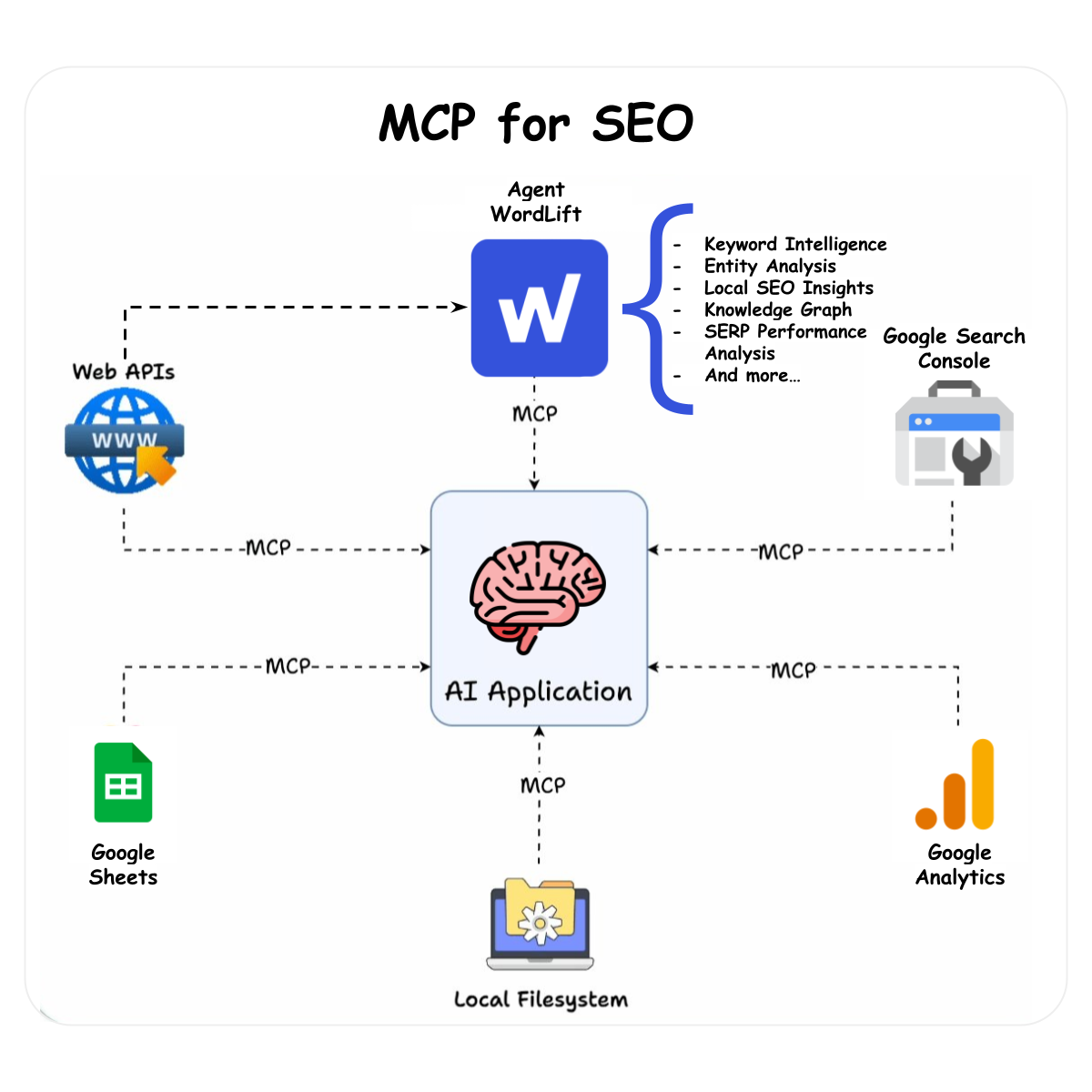The Model Context Protocol (MCP) is an open standard that allows AI agents and large language models (LLMs) to connect with external tools, data sources, and environments using a shared, structured interface. Often referred to as the “HTTP for AI systems,” MCP enables secure and scalable communication between AI hosts (like Claude or GPT) and a wide range of external services, including APIs, documents, databases, and web search.
Overview
MCP was introduced in 2024 by a coalition of AI and developer tool providers, including Anthropic, Sourcegraph, Replit, and others. It addresses one of the most pressing challenges in AI: providing reliable context to models during inference. Rather than relying solely on static prompts, MCP enables agents to dynamically retrieve relevant information or invoke actions in real-time.
At its core, MCP defines three types of primitives:
- Tools – Executable functions (e.g., search APIs, SEO audits)
- Resources – Data structures or knowledge (e.g., product metadata, documents)
- Prompts – Instruction templates used to guide agent behavior
Key Concepts
MCP introduces a host-client-server architecture:
- The host is the AI platform or assistant (e.g., Claude, GPT-4)
- The client is the runtime process managing the interaction with a specific server
- The server exposes the tools and resources available for use by the AI agent
This architecture creates a modular and secure way to build “agent apps” where context and capabilities can be pulled in live — making AI systems significantly more powerful and task-aware.
Application in SEO and eCommerce
The use of MCP in SEO is growing rapidly. By exposing structured data, content analysis tools, and analytics dashboards via MCP, AI agents can now:
- Perform SEO audits
- Generate or optimize content
- Analyze keyword data
- Integrate with platforms like Google Search Console
- Interact with a product knowledge graph
In eCommerce, MCP servers are being used to power AI shopping assistants, such as SARA, by giving AI agents real-time access to product catalogs, inventory status, and business rules.
WordLift and MCP
At WordLift, we are integrating MCP into our platform to enable AI agents to interact with our clients’ product knowledge graphs. Through neural search and a suite of SEO-optimized prompts and tools, our MCP server supports content automation, personalized recommendations, and conversational commerce experiences.
Learn more in our main article on MCP — including practical tools, examples, and use cases.
Related Tools and Servers
- Apify SEO Audit Tool (MCP Server)
- Google Search Console MCP Server
- DataForSEO MCP Server
- Cursor IDE + SEO Inspector
- WordLift’s eCommerce MCP Server
